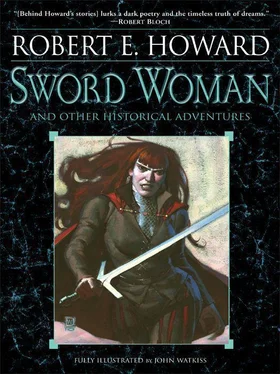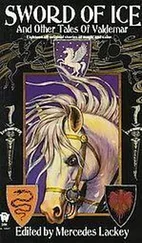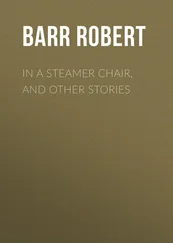“Handle it carefully,” I snarled. “I swear, when it comes back into my hands I will bathe it in swine’s blood to cleanse it of the pollution of thy filthy fingers.”
I thought the veins in his forehead would burst with fury, but with a howl of rage, he turned his back on us, and we perforce followed him, with his ragged wolves holding tight to our reins.
I saw Sir Eric’s plan, though we dared not speak to each other. There was no doubt but that the hills swarmed with Bedouins. To seek to hack our way through them were madness. If we joined forces with them, we had a chance to live, scant though it was. If not – well, these dogs love a Turk little and a Frank none.
On all sides we caught glimpses of hairy men in dirty garments, watching us from behind rocks or from among ravines, with hard, hawk-like eyes; and presently we came to a sort of natural basin where some five hundred splendid Arab steeds sought the scanty grass that straggled there. My very mouth watered. By Allah, these Bedoui be dogs and sons of dogs, but they breed good horse flesh!
A hundred or so warriors watched the horses – tall, lean men, hard as the desert that bred them, with steel caps, round bucklers, mail shirts, long sabers and lances. No sign of fire was seen and the men looked worn and evil as with hunger and hard riding. Little loot had they of that raid! Somewhat apart from them on a sort of knoll sat a group of older warriors and there our captors led us.
Ali bin Sulieman we knew at once; like all his race he was tall and wide shouldered, tall as Sir Eric but lacking the Frank’s massiveness, built with the savage economy of a desert wolf. His eyes were piercing and menacing, his face lean and cruel. Sir Eric did not wait for him to speak: “Ali bin Sulieman,” said the Frank, “we have brought you two good swords.”
Ali bin Sulieman snarled as if Sir Eric had suggested cutting his throat.
“What is this?” he snapped, and Yurzed spake, saying: “These Franks and this dog of a Turk we found in the fringe of the hills, just at the lifting of dawn. They came from toward the Persian camp. Be on your guard, Ali bin Sulieman; Franks are crafty in speech, and this Turk is no Seljuk, meseemeth, but some devil from the East.”
“Aye,” Ali grinned ferociously, “we have notables among us! The Turk is Kosru Malik the Chagatai, whose trail the ravens follow. And unless I am mad, that shield is the shield of Sir Eric de Cogan.”
“Trust them not,” urged Yurzed. “Let us throw their heads to the Persian dogs.”
Sir Eric laughed and his eyes grew cold and hard as is the manner of Franks when they stare into the naked face of Doom.
“Many shall die first, though our swords be taken from us,” quoth he. “And, chief of the desert, ye have no men to waste. Soon ye will need all the swords ye have and they may not suffice. You are in a trap.”
Ali tugged at his beard and his eyes were evil and fearful.
“If ye be a true man, tell me whose host is that upon the plain.”
“That is the army of Muhammad Khan, sultan of Kizilshehr.”
Those about Ali cried out mockingly and angrily and Ali cursed.
“You lie! Muhammad’s wolves have harried us for a day and a night. They have hung at our flanks like jackals dogging a wounded stag. At dusk we turned on them and scattered them; then when we rode into the hills, lo, on the other side we saw a great host encamped. How can that be Muhammad?”
“Those who harried you were no more than outriders,” replied Sir Eric, “light cavalry sent by Muhammad to hang on your flanks and herd you into his trap like so many cattle. The country is up behind you; you cannot turn back. Nay, the only way is through the Persian ranks.”
“Aye, so,” said Ali with bitter irony. “Now I know you speak like a friend; shall five hundred men cut their way through ten thousand?”
Sir Eric laughed. “The mists of morning still veil yon plain. Let them rise and you will see no more than a thousand men.”
“He lies,” broke in Yurzed, for whom I was beginning to cherish a hearty dislike. “All night the plain was full of the tramp of horsemen and we saw the blaze of a hundred fires.”
“To trick you,” said Sir Eric, “to make you believe you looked on a great army. The horsemen rode the plain, partly to create the impression of vast numbers, partly to prevent scouts from slipping too close to the fires. You have to deal with a master at stratagems. When did you come into these hills?”
“Somewhat after dark, last night,” said Ali.
“And Muhammad arrived at dusk. Did you not see the signal smokes behind and about you as you rode? They were lighted by scouts to reveal to Muhammad your movements. He timed his march perfectly and arrived in time to build his fires and catch you in his trap. You might have ridden through them last night, and many escaped. Now you must fight by daylight and I have no doubt but that more Persians are riding this way. See, the mist clears; come with me to yon eminence and I will show you I speak truth.”
The mist indeed had cleared from the plain, and Ali cursed as he looked down on the wide flung camp of the Persians, who were beginning to tighten cinch and armor strap, and see to their weapons, judging from the turmoil in camp.
“Trapped and tricked,” he cursed. “And my own men growl behind my back. There is no water nor much grass in these hills. So close those cursed Kurds pressed us, that we, who thought them the vanguard of Muhammad’s army, have had no time to rest or eat for a day and a night. We have not even built fires for lack of aught to cook. What of the five hundred outriders we scattered at dusk, Sir Eric? They fled at the first charge, the crafty dogs.”
“No doubt they have reformed and lurk somewhere in your rear,” said Sir Eric. “Best that we mount and strike the Persians swiftly, before the heat of the growing day weakens your hungry men. If those Kurds come in behind us, we are caught in the nut cracker.”
Ali nodded and gnawed his beard, as one lost in deep thought. Suddenly he spake: “Why do you tell me this? Why join yourselves to the weaker side? What guile brought you into my camp?”
Sir Eric shrugged his shoulders. “We are fleeing Muhammad. This girl is my betrothed, whom one of his emirs stole from me. If they catch us, our lives are forfeit.”
Thus he spake, not daring to divulge the fact that it was Muhammad himself who desired the girl, nor that she was the niece of William de Brose, lest Ali buy peace from the Persian by handing us over to him.
The Arab nodded absently, but he seemed well pleased. “Give them back their swords,” said he. “I have heard that Sir Eric de Cogan keeps his word. We will take the Turk on trust.”
So Yurzed reluctantly gave us back our blades. Sir Eric’s weapon was a true Crusader’s sword – long, heavy and double edged, with a wide cross guard. Mine was a scimitar forged beyond the Oxus – the hilt set in jewels, the blade of fine blue steel of goodly length, not too curved for thrusting nor too straight for slashing, not too heavy for swift and cunning work yet not too light for mighty blows.
Sir Eric drew the girl aside and said softly: “Ettaire, God knows what is best. It may be that you and I and Kosru Malik die here. We must fight the Persians and God alone knows what the outcome may be. But any other course had cut our throats.”
“Come what may, my dear lord,” said she with her soul shining in her eyes, “if it find me by your side, I am content.”
“What manner of warriors are these Bedoui, my brother?” asked Sir Eric.
“They are fierce fighters,” I answered, “but they will not stand. One of them in single combat is a match for a Turk and more than a match for a Kurd or a Persian, but the melee of a serried field is another matter. They will charge like a blinding blast from the desert and if the Persians break and the smell of victory touches the Arabs’ nostrils, they will be irresistible. But if Muhammad holds firm and withstands their first onslaught, then you and I had better break away and ride, for these men are hawks who give over if they miss their prey at the first swoop.”
Читать дальше












